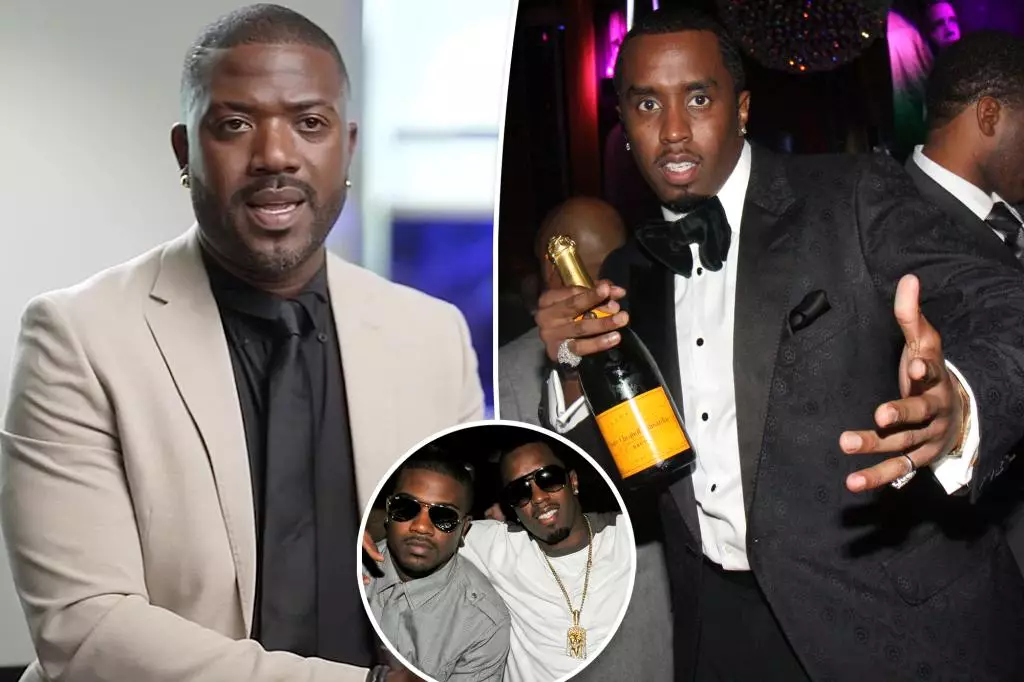The entertainment industry, often viewed through a lens of glamour, glitz, and front-page headlines, hides myriad stories that never see the light of day. Recently, Ray J, a well-known figure in the music industry, gave a candid and controversial interview with Harvey Levin of TMZ, shedding light on the dark underbelly of celebrity culture. In his remarks, Ray J spoke about the troubling dynamics of silence and complicity among high-profile figures, particularly in the wake of legal troubles surrounding Sean “Diddy” Combs. This development raises questions about accountability, truth-telling, and the pervasive culture of secrecy that can shield powerful individuals from the consequences of their actions.
Ray J’s insightful comments highlight a troubling phenomenon often referred to as “catch and kill,” where individuals are allegedly paid off to maintain silence about sensitive issues. This act of burying the truth is not just a personal betrayal; it perpetuates a culture in which powerful figures can manipulate narratives and evade accountability for their actions. Ray J asserted that many individuals within the industry serve as conduits for these secrets, revealing how stars feel pressured to keep quiet to protect their own interests and maintain their public personas.
He expressed a growing sense of anguish over the number of individuals willing to remain mute when they should speak up. The idea that A-list celebrities would pay off potential whistleblowers to remain under the radar is not just disheartening—it’s indicative of a systemic issue that prioritizes image over integrity. Ray J’s willingness to discuss these occurrences, albeit indirectly, underlines a significant shift in the narrative surrounding celebrity accountability.
During his interview, Ray J indicated that numerous celebrities have reached out to him to confidentially share their experiences with Diddy, suggesting a network of individuals daunted by the implications of speaking out. This assertion underscores a critical testament to the climate of distrust permeating the entertainment industry. A space that ought to foster creativity and expression has become riddled with fear, as individuals hesitate to share their stories due to potential repercussions.
The implication that these moments of distress and victimization could be silenced for monetary gain raises alarming ethical concerns about the very fabric of the celebrity culture. The willingness of these individuals to trust Ray J with their stories hints at a yearning for accountability and an avenue for validation, even while navigating the treacherous waters of fame.
As the legal issues surrounding Diddy unfold—with allegations that include sex trafficking and racketeering—the potential ramifications for others involved cannot be understated. With multiple claims of sexual assault against him, the pressure grows not only on Diddy but also on those who chose silence over speaking out. Tony Buzbee, an attorney representing alleged victims, claims that shocking revelations await the public regarding accomplices to Diddy’s alleged conduct. This speaking up could evoke a transformation in how society perceives such accountability among powerful figures.
Many fear that failure to address these truths openly could embolden others in similar positions, reinforcing the narrative that powerful celebrities can act with impunity. This atmosphere fosters an environment where silence outweighs justice, creating a vicious cycle that keeps victims trapped in the shadows.
Ray J’s candid remarks serve as a critical reminder of the complexities inherent in the celebrity culture. As the fallout from Diddy’s escalating legal troubles continues, the importance of truth-telling cannot be overstated. There is reason to hope that this moment might mark the beginning of a new chapter—one where individuals within the industry make a concerted effort to address these issues openly and refuse to be complicit.
The entertainment world must grapple with its demons, dismantle its culture of silence, and allow for a more honest and transparent discourse surrounding abuse and accountability. Only then can healing begin for those who have suffered in silence and ensure that the powerful do not remain unchallenged. The question remains: will those in positions of power choose the money and silence, or will they speak truth to power?

